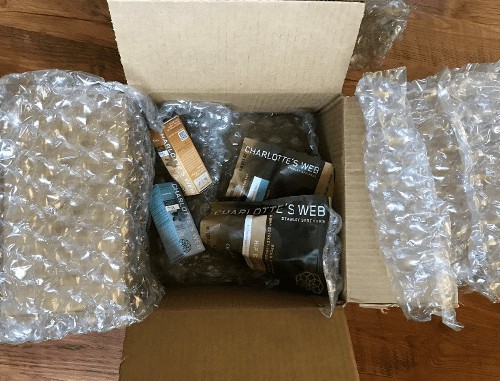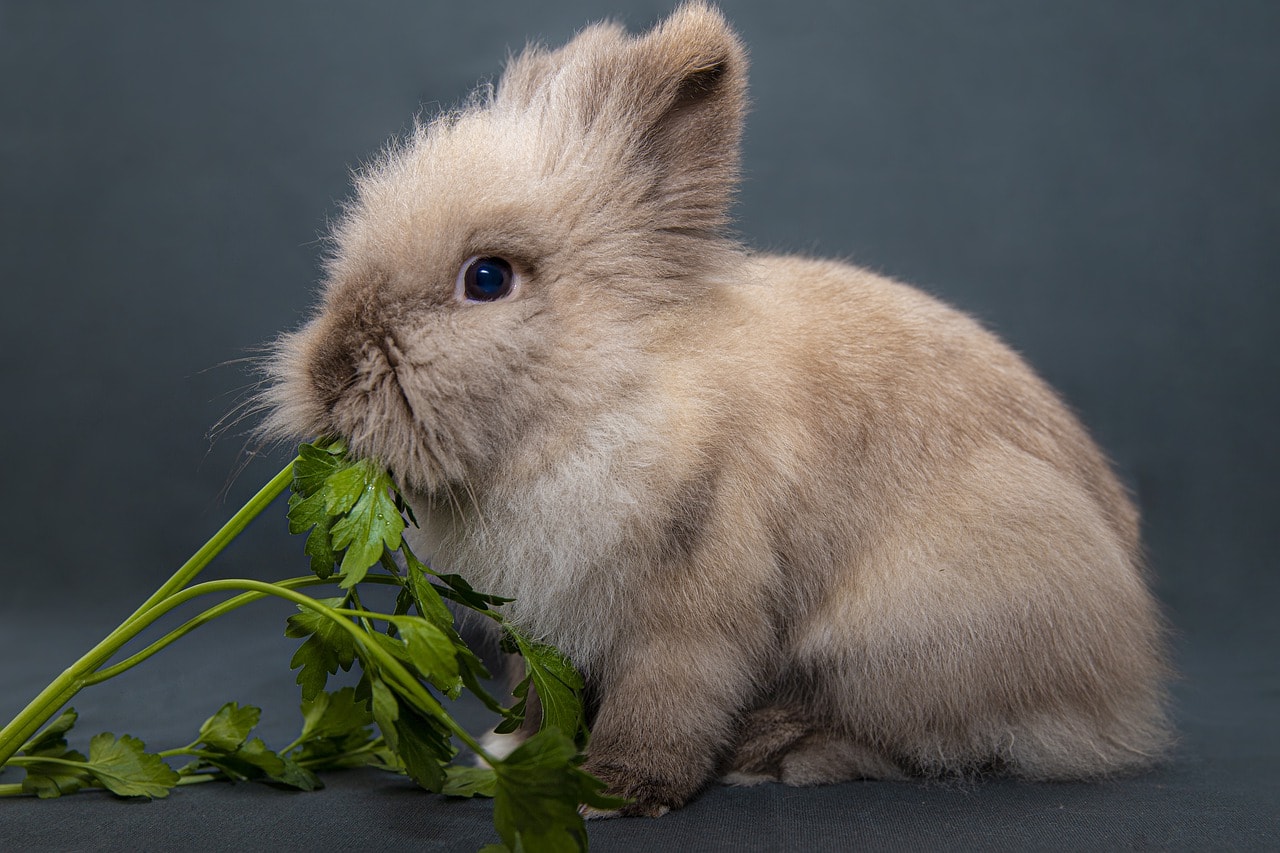

You may have observed rabbits eat foods that aren’t “typical” of the species’ diet. However, rabbits are considered herbivores because their digestive systems are specifically optimized for vegetables and herbs.
This is not to say that rabbits won’t sneak a meat-based treat like a strip of crunchy bacon in their mouths. They do, especially if they are hungry. While such a diet won’t hurt your bunny immediately, too much of it will harm them eventually.
Here’s what you need to know about a rabbit’s diet, which food is safe, what’s not, and why they should only be following a plant-based diet.

What to Feed a Rabbit: A Plant-Based Diet
Rabbits are classified as obligate herbivores, which means that they MUST only consume plant and herb material in their diet to thrive and stay healthy.
There are various reasons why these creatures have evolved to rely strictly on a plant-based diet. They include:
1. It Plays a Vital Role in Their Defense Strategy
Bunnies evolved to require a plant-based diet due to natural selection, ensuring that animals adopt traits that enhance their survival in the wild. These fluffy creatures are constant prey victims to many predators in the wild. For this reason, they have various adaptations to help combat predation and to survive, including relying on plants and herbs for food.
First off, plants allow rabbits to eat in open fields, a habitat that makes it easy for them to detect approaching predators. Plus, a diet of dry fibrous material aids a bunny in its fast-flight reaction. A plant-based diet does not sit significantly heavier in the animal’s stomach like other fat-rich food that hinders its ability to escape danger.
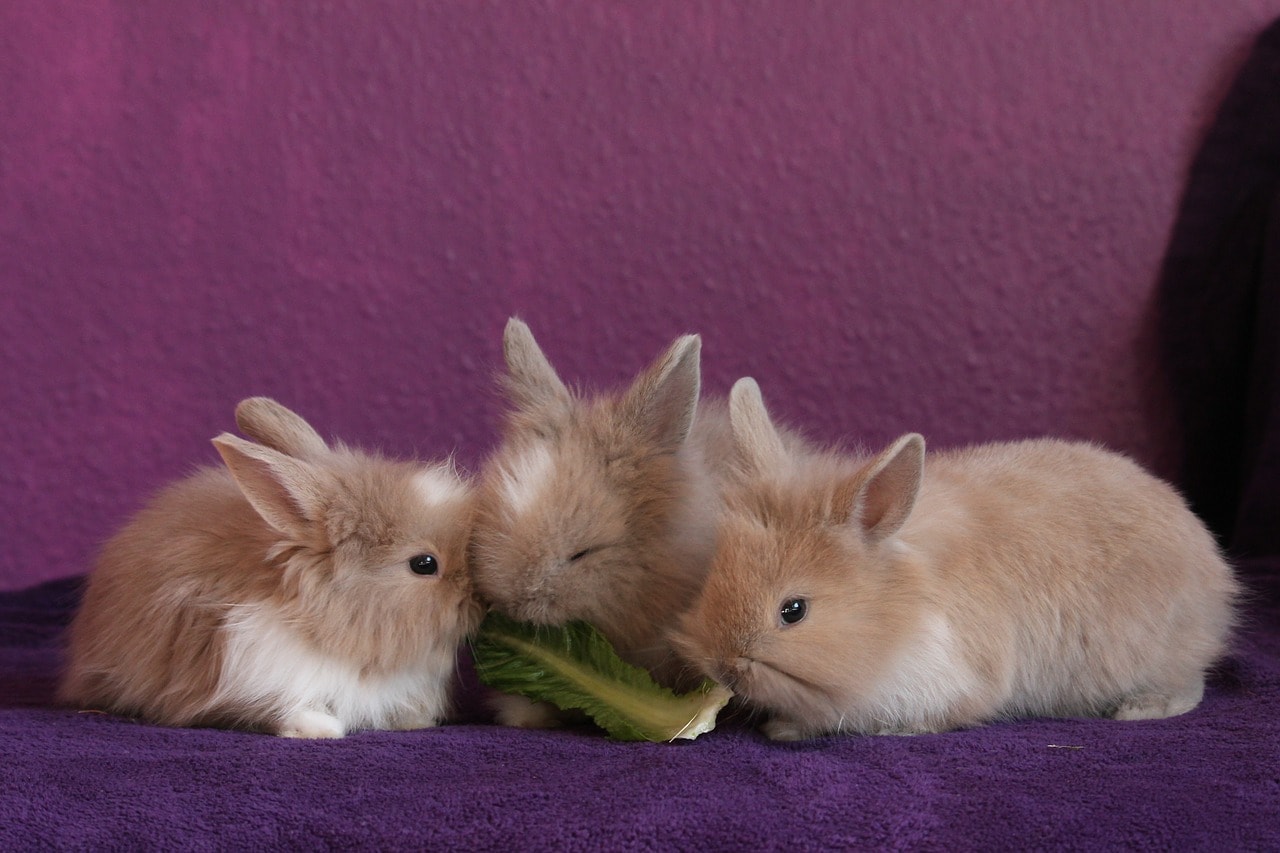
2. Helps Shed Their Teeth
A rabbit’s teeth are constantly growing, which means that bunny parents should help their pets shed them before they develop into problematic lengths. Unfortunately, the only way to help wear the teeth down is by allowing rabbits to graze on fiber. Plants and herbs contain the most fiber content.
3. Their Digestive System is Designed for Plant and Herbs
As mentioned earlier, rabbit’s gastrointestinal tract is designed to process enormous amounts of fibrous materials and limited proteins.

Can Rabbits Eat Meat?
Some bunnies eat meat, and sadly, some female rabbits eat their offspring, although it is rare. These creatures can eat meat when there’s nothing else to eat, and they are starving.
However, NEVER feed your rabbits meat because they are not built to eat such a diet. They cannot digest meat, so if your bunny eats it, it will get sick even only with a small amount.
Your animals may develop loose stools from eating a small amount of meat. However, if you feed them an excess meat diet, you risk killing them.
Plus, bunnies require fiber to survive, components you may not find within meat diets in significant amounts. This diet is rich in fat and proteins that rabbits do not require to get in drastic quantities.
This means that if you offer meat to your bunnies, they’ll get minimal nutrients from them. So, if they don’t necessarily perish from overeating meat itself, your pets will certainly die due to a lack of proper nutrition.
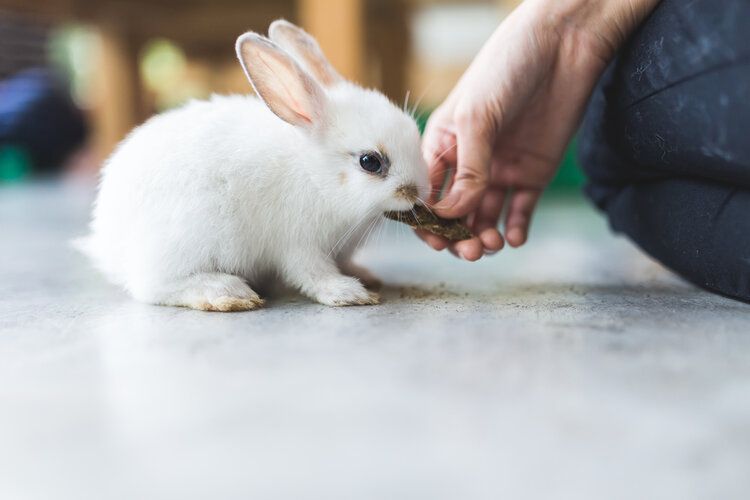
Rabbit Feeding Issues
Rabbits fend for themselves in their natural wild habitats and eat foods that enrich their dietary needs. However, you may easily feed rabbits in a way that deprives them of certain vital nutrients in captivity.
When these creatures lack the nutrients they’ve evolved to require, like plants rich in fibers, it poses detrimental effects on their health.
These animals are prone to gastrointestinal problems resulting from inappropriate diets like limited fiber content, high protein levels, and too many carbs. Also, feeding your rabbit treats it’s not accustomed to can upset its digestive system.
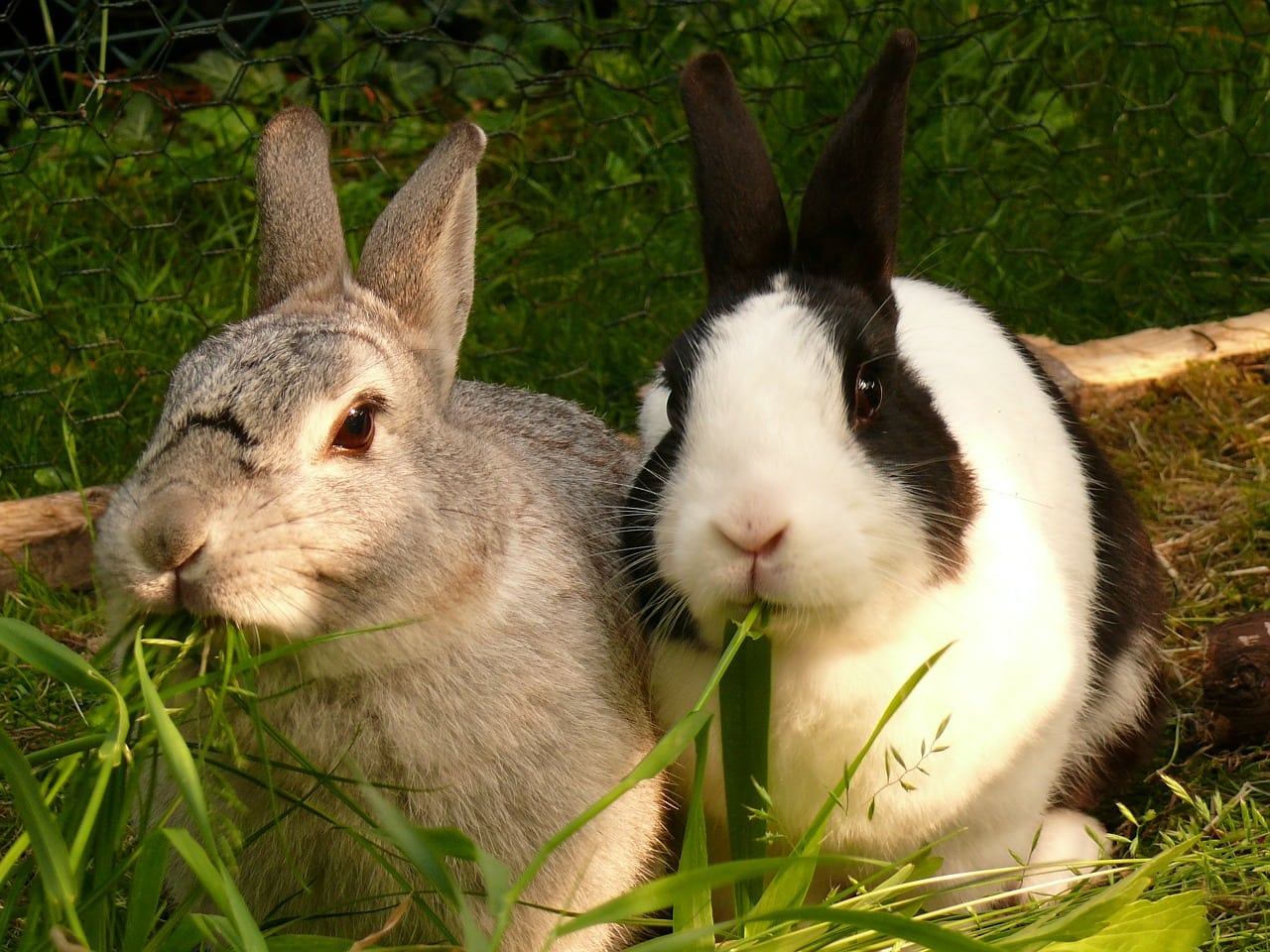
Health Problems Due to Improper Feeding
Enteritis
Young rabbits that eat too many carbohydrates may suffer from enteritis, which is intestine inflammation. Untreated enteritis can develop into enterotoxemia, which is caused by an overgrowth of pathogenic bacteria.
Worse still, another form of enteritis known as Mucoid enteritis can also develop, causing excess mucus secretion that can build up in a rabbit’s intestines.
Gastrointestinal Stasis Syndrome
Offering your bunny an inappropriate diet can trigger the GI Stasis syndrome, which often results in intestinal obstruction that can necessitate surgery.
Pregnancy Toxemia
Pregnant or lactating rabbits that do not get the proper nutrients required for their current state can develop pregnancy toxemia, also known as ketosis. It may result in seizures and has high fatality rates.
Kidney Disease
This condition mainly occurs if a rabbit’s diet consists of excess calcium. However, too much calcium can also cause urolithiasis, which involves the formation of urinary stones.

Rabbit Diet Essentials
The mainspring of any healthy rabbit diet should consist of fresh veggies, high-quality pellets, fresh hay, and clean, fresh drinking water. You should consider anything other than these essential foods as “treats” and offer them in limited portions.
1. Pellets
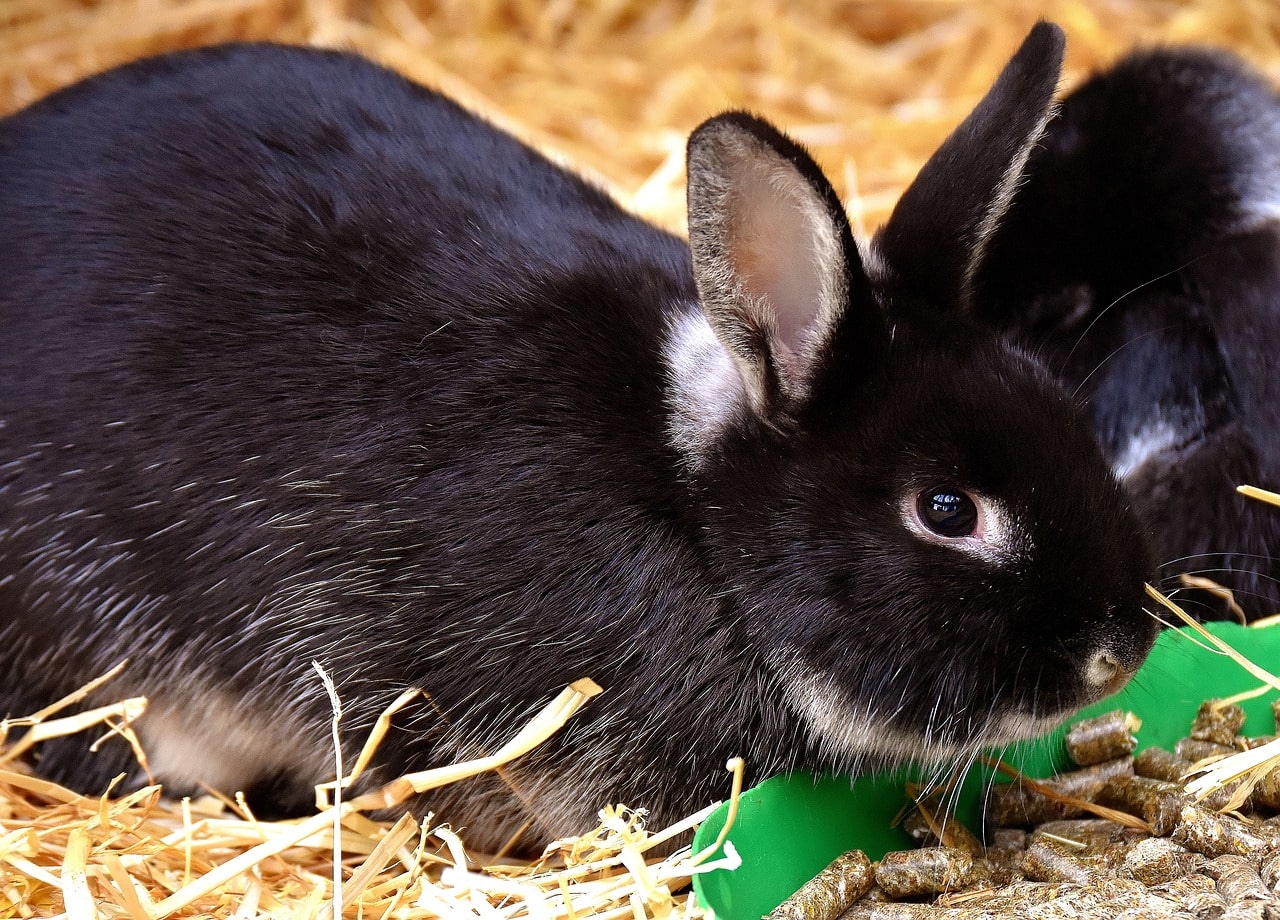
It’s vital to remember that the amount of essential rabbit diet you offer your pet varies with age. Pellets are necessary among young bunnies because they contain concentrated nutrients that these animals need in their developmental stage.
Provide nutritionally balanced pellets to your bunny, and they should consist not less than 18% fiber content. However, minimize pellets when your rabbits reach maturity and replace them with veggies and hay.
Too many pellets for mature rabbits causes obesity and other health problems.
2. Hay
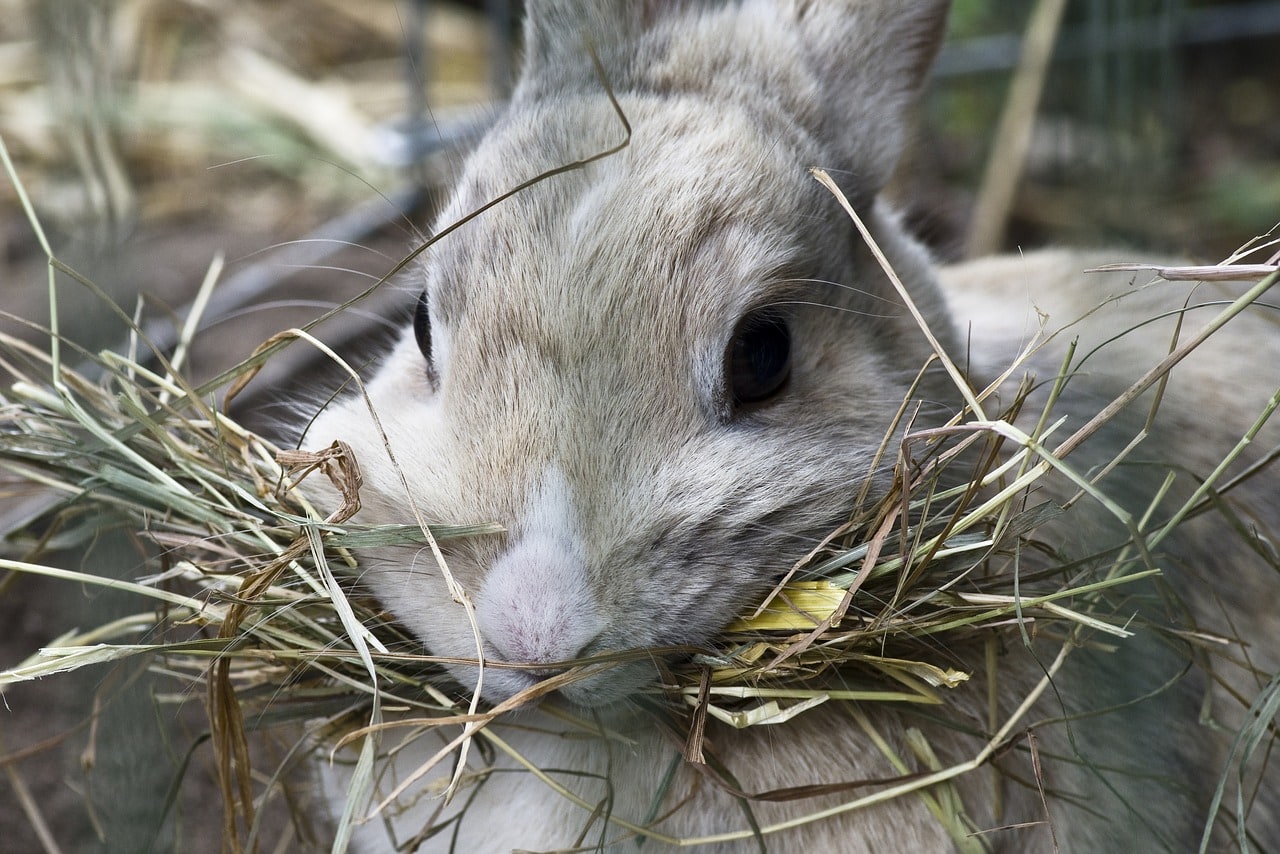
Rabbits should have 24-hour supply of fresh hay! Alfalfa hay is suitable for bunnies less than seven months old, while adults can have timothy or oat hay.
Hay provides sufficient roughage that helps with dental health, reduces hairballs, and prevents intestinal blockage.
3. Water
Ensure your pets have fresh and clean water at all times. Change the water in the bottle every day and rinse the water containers at least once every week before adding more water.
4. Veggies
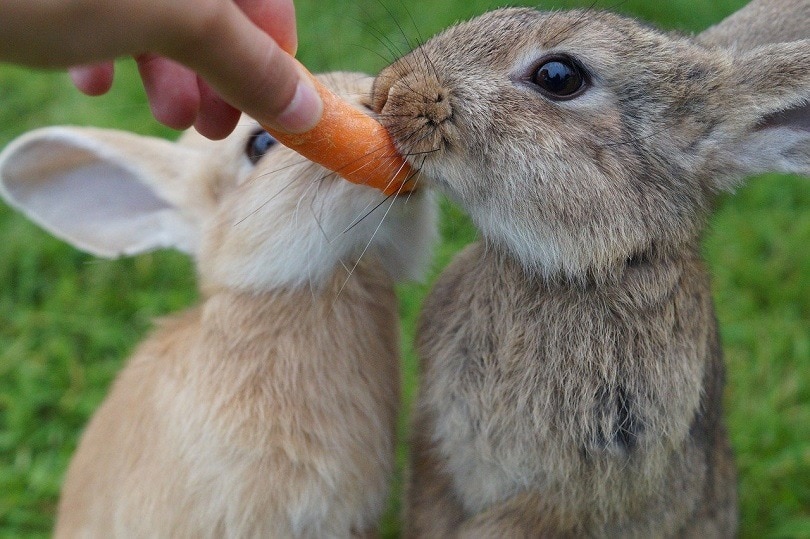
Any rabbit from 3 months old can have vegetables, which offer fiber and vitamins. You can gradually introduce this diet plan one veggie at a time while watching for potential allergies.
Eliminate those that cause stomach discomfort and diarrhea and continue providing differently colored leafy and root veggies. Such vegetables include:
- Carrots
- Basil
- Collard greens
- Broccoli leaves and stems
- Peapods
- Mustard greens
- Kale
- Celery
- Bok choy
- Parsley
- Spinach
- Lettuce (except iceberg lettuce)
- Peppermint leaves
- Mint
- Watercress
- Raspberry leaves
- Clovers
- Dandelion leaves
5. Treats
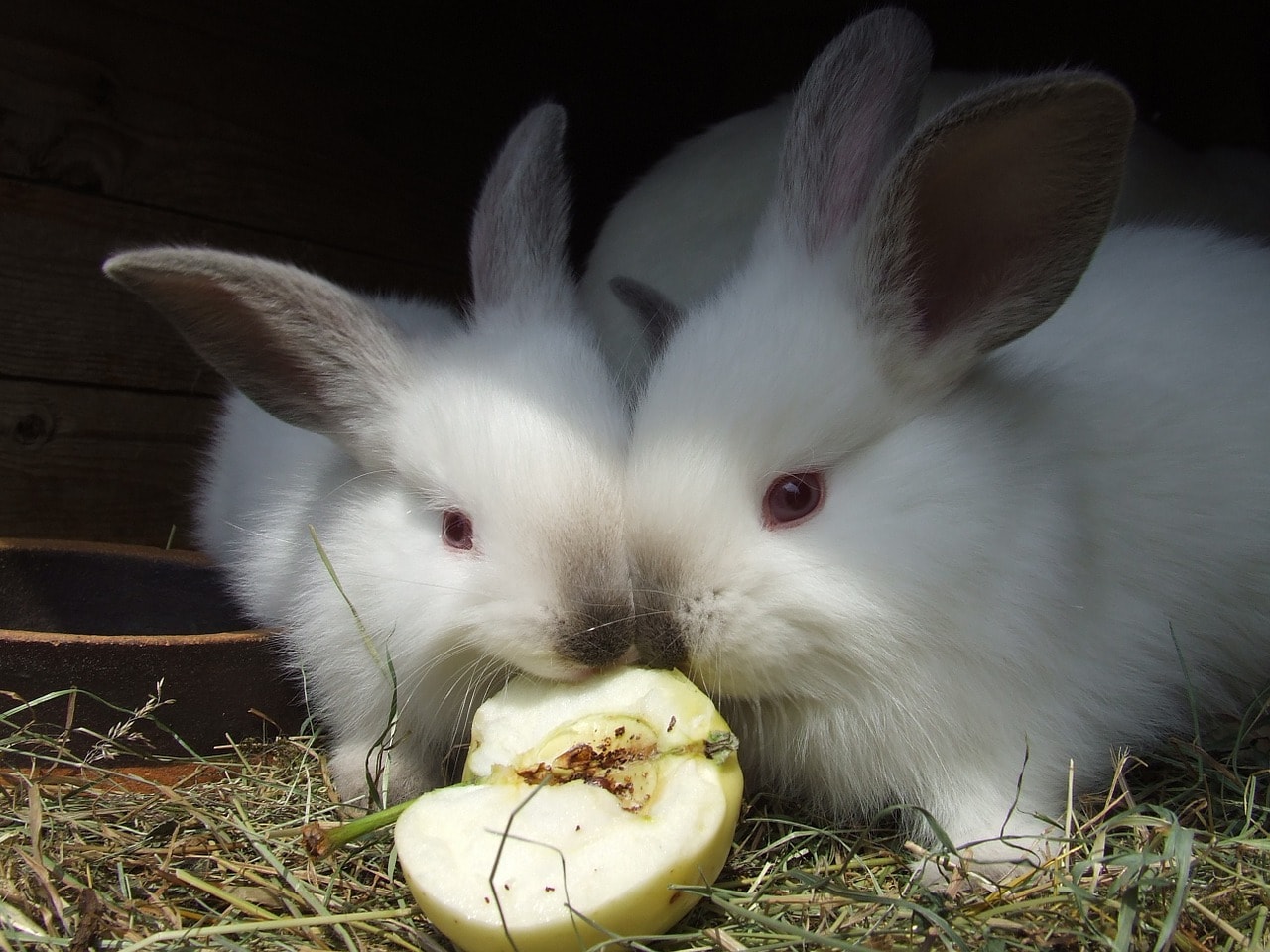
Treats like fresh fruits have high caloric contents than necessary, so provide them to your pet sparingly.
Bunnies can also digest other treats like barley and oats. However, they also have excess calories and carbohydrates that have been linked to enteritis in bunnies.
Fruit treats can include:
- Berries
- Apples (without seeds)
- Grapes
- Pineapple
- Cherries (seedless)
- Banana
- Orange
- Papaya
- Watermelon
- Pear
- Plum
6. Chewing Items
Healthy chewing items like hay and vegetables can help maintain your bunny’s teeth and prevent them from overgrowing.
You can also include chew sticks, cardboard tubes, untreated gnaw wood, or untreated wicker.
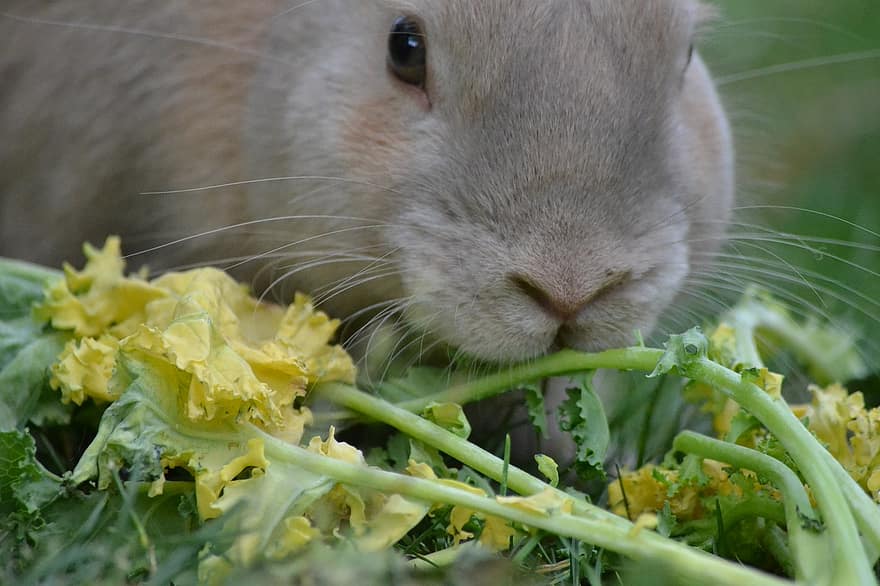
Foods to Avoid
Some foods can make rabbits ill, so you should not offer them to your bunny under any circumstance. They include:
- Human Treats
- Cereal
- Cabbage
- Legumes
- Chocolate
- Crackers
- Corn
- Beans
- Cauliflower
- Nuts
- Sugar
- Yogurt
- Seeds
- Potatoes
- Iceberg lettuce
- Beet greens
- Turnip greens
- Mustard greens
- Pasta

Summary
Evolution shaped a rabbit’s dietary needs, as high fiber feeds have allowed rabbits to survive and thrive. Rabbit parents should consider this fact when raising their pets in captivity.
Ensure that you mimic a rabbit’s natural diet in the wild as much as possible because any deviation can result in severe health issues. Avoid meat diet at all costs.
Featured Image Credit: Pixabay
Nicole is the proud mom of Baby, a Burmese cat and Rosa, a New Zealand Huntaway. A Canadian expat, Nicole now lives on a lush forest property with her Kiwi husband in New Zealand. She has a strong love for all animals of all shapes and sizes (and particularly loves a good interspecies friendship) and wants to share her animal knowledge and other experts’ knowledge with pet lovers across the globe.

